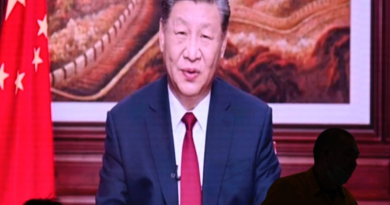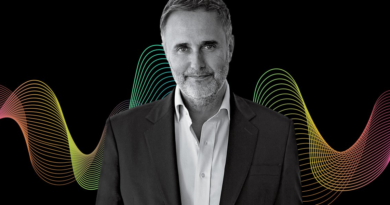Ford CEO: It’s ‘undeniable’ that EVs will eventually have to turn a profit, but we’re years away
Electric vehicles can’t keep being money losers in perpetuity, but for the time being, that’s exactly what they are.
In a wide-ranging interview, Ford CEO Jim Farley touched on the difficulties facing the electric vehicle market. Originally touted as the next big thing in the auto industry, new models have struggled to gain market share beyond early adopters. As a result, sales have languished. That’s left automakers, like Ford, to figure out how to invest in an emerging technology that will prove critical to the future, despite it currently being unprofitable. It is “undeniable” that Ford’s electric vehicles will have to eventually become a money-making enterprise, the CEO said.
“We’re not gonna invest in the future of EVs unless we’re convinced we’ll be profitable,” Farley declared in an interview with Yahoo News.
So far, they aren’t. But Farley is betting on a reversal. In the first quarter, Ford’s electric-vehicle segment lost $1.3 billion. Farley said those losses would become profits in “a couple years,” when Ford churns out its second generation of electric vehicles.
In “the first generation, we have a lot of opportunity to improve our losses,” Farley said. “But until we get to the second generation, which we start to roll out in the next couple of years, that’s when things turn around.”
A spokesperson for Ford said the company hasn’t released specific timing on when it expects its electric vehicle business to be profitable. They added that the new EVs will only be released once that’s the case. “We’ve also explained that we’ll introduce next-generation EVs—they’re well along in development, new from the ground up—when we’re confident they’ll be profitable within the first year,” the Ford spokesperson said.
Ford and other EV makers face a tall task if they’re to live up to Farley’s words. Recent months have shown just how much the transition to electric vehicles has stalled. Consumer demand for fully electric vehicles has waned considerably. In turn, Ford opted to make more hybrid vehicles instead of fully electric ones and pushed back delivery of the newest lineup of electric vehicles. More than anything else, average car buyers—those not already predisposed to purchasing an electric car—have been put off by high prices. That’s to say nothing of the existing concerns about the hassle associated with finding a charger when a car’s battery runs low.
Ford is currently the second-highest-selling EV manufacturer in the country, selling about 20,000 cars in the first quarter. The remaining hurdle for Ford and its peers is to find a way to reduce costs for their models, which still tend to be priced higher than standard internal-combustion-engine cars. It could take years for electric vehicles to reach the same level of costs as gas-powered vehicles. It’s unlikely electric vehicles will be as cheap to manufacture as combustion engine cars before 2030, Farley said last month.
The majority of lower-priced EVs come from Chinese manufacturers such as BYD. China is the world leader in electric vehicles because it has an advantage in the manufacturing of car batteries, which have significantly higher costs compared to internal combustion engines. Farley estimates the costs of a combustion engine’s drivetrain are 10% of those for an electric vehicle. Until U.S. companies like Ford can produce car batteries and other components more affordably, they won’t be able to compete.
“Really it’s the batteries and the one-time investment for building the battery plants and the manufacturing facility and engineering these very different kinds of vehicles,” Farley said.
The actual engineering of the vehicle, the parts that are required to build an EV, are totally different than an internal-combustion-engine vehicle.”
Ford is currently building a new electric vehicle plant in Michigan. Construction on the facility has resumed after it was paused during the autoworkers’ strike last summer—although, when construction resumed in November, Ford scaled back the plant given the lower demand for electric vehicles from customers. The downsizing will reduce the number of expected jobs at the plant from 2,500 to 1,700, and the projected battery output will be 230,000 a year, down from 400,000.
Earlier this year Ford cut back production of EVs at its existing plants as well. Hit especially hard by lagging sales was the F150 Lighting, the electric version of its popular pickup truck. In December, Ford announced it was cutting production of the F150 Lightning in half. By March it had laid off two two-thirds of the employees at the Dearborn, Mich., facility where the electric truck was assembled.
The cuts in production come at the same time that the Biden administration implemented a series of tariffs on Chinese electric vehicles meant to protect domestic manufacturers. Farley welcomed the tariffs in the short-term, but said Ford shouldn’t rely on them too much moving forward.
“Tariffs are an important part of leveling the field for a time,” Farley said. “But ultimately Ford has to be fully competitive on cost and quality with whoever we compete with, including BYD or [other] Chinese players.”
Critics of the tariffs also agreed with Farley that they would be effective immediately but shouldn’t be a long-term solution. The principal concern is that the U.S. electric-vehicle industry should learn to stand on its own two feet. That way, the companies making electric vehicles will be able to support both the U.S. economy and its efforts to fight climate change through the energy transition.




